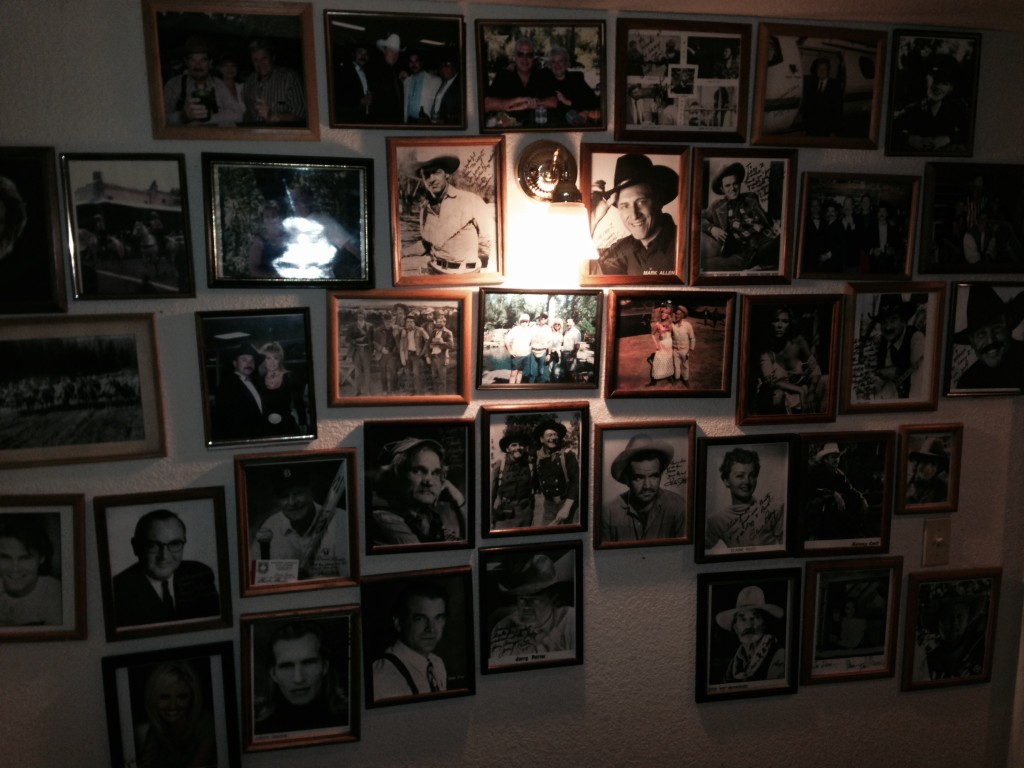I’m writing this blog on a mountain. The Lazy Z Resort proudly calls itself “a mountain hideaway.” It certainly is secluded, judging by the winding, motion-sickness inducing road and the spotty wifi that fulfills my barest online needs. Not that I’m complaining. The stars here are gorgeous.
And I do mean the fiery balls of gas in space, not the apparently well-known folk who have stayed here before. The photo wall does make a decent gallery of sexy white women, cowboy hats, and fringed leather jackets.
I have to say, the further I am from major cities, the less I feel I belong in North America. Isn’t that funny? Moving through a predominantly white population is jarring, considering I spent most of my life surrounded by the Asian diaspora of the Lower Mainland. It’s not that I experience unpleasant encounters here in places such as Twain Harte or Sonora—far from it—but the sensation that I’ve crossed into “Otherness” does tend to creep under my skin from time to time.
I suppose with that, I’ll dive right into my assigned pages (page 169-181) for Thomas King’s Green Grass, Running Water. (But first, I’d like to apologize for the lack of proper GGRW in-text citation because I’m currently working off an ebook that has no page numbers. Curse you, Amazon.)
There is so much to talk about even in these few pages; it’s a little overwhelming. Continue reading


